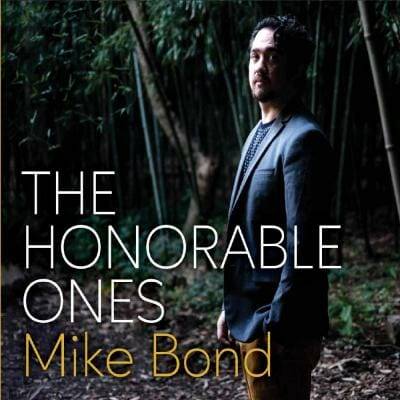Mike Bond The Honorable Ones
Mike Bond
The Honorable Ones
Bounce Castle
Pianist Mike Bonds is making his debut as a leader with The Honorable Ones, and it’s a quite impressive one. Joined by NYC-based first callers, the core quintet has acclaimed reed man Steve Wilson on alto and soprano, rising trumpet star Josh Evans, renowned bassist and bandleader Ben Wolfe, and ascending drummer Anwar Marshall. The quintet is augments by three special guests including beatbox vocalist Gene Shinozaki, multi-Grammy nominee singer Claudia Acuna and vocalist Maya Holiday. Bond composed ten of the twelve selections, organized as a story, by chapters.
Stepping into the limelight as a leader was a huge step for the 30-year-old Bond who received much encouragement from his friend, the producer, and key mentor since Bond’s student days at Rutgers, Orrin Evans (also the pianist of the widely hailed The Bad Plus). Bonds says, “The concept behind {the album} was addressing that hesitation as an artist. The title track represents an analogy of leaving your comfort zone and entering into the battle zone, to grow and learn from uncomfortable places – to take risks. So it’s an homage to people like Orrin, who have encouraged me to take off the seatbelt, who are willing to put themselves out there and, no matter what happens, step into that fire and do what you need to do in order to grow.”
In one sense it would be hard to be anything but successful surrounded by this group of musicians. They are confidence builders. Wilson and Josh Evan open fire immediately on the first track, “Chapter 1: On Your Mark,” a short piece that leads into the lyrical “Verus Vita,” which each soloist shining, especially Bond who delivers a shimmering piano solo. “It’s A Long Way Back” recalls the hard and post bop of Art Blakey and the Jazz Messengers circa 1979-80 with Wilson leading the way on his alto solo. “Block the Box “ nods to Coltrane’s iconic Giant Steps with Wilson o soprano and Evans using the Harmon mute.
“Chapter 2: Get Set…” introduces Claudia Acuna, who dialogues with Wilson on the second of three freely improvised tunes in the set (this has many different styles), and then, rather unpredictably, as seems to be the norm here, she delivers a haunting, dark reading of the Harry Warren Standard, “The More I See You.” Acuna departs, making way for the Spanish-tinged “Chase the Wind,” inspired by Chick Corea, that features a concise Bond solo, followed by Wilson’s limber soprano and Evans’ rather bold trumpet statement.
“Chapter 3: Go…” signals another change in the configuration, leading to the standout title track with Wilson and Evans playing in counterpoint through a lengthy conversation that Shinozaki augments with his own signature rhythms. Bond offers this on Shinozaki, “ He can mimic the sounds of a hip-hop drum beat, Latin rhythms – and he can swing, too, with a nasty ride cymbal impression. Both he and Anwar are great listeners, and I knew how well they’d interact.”
Mike Bond also engages in a couple of trio selections, the first being the contemplative, tender “Polarized Child,” a sensitive song about his wife’s struggles with PTSD.” Then, he wisely amps the tempo for the trio rendered, swinging “Time Well Spent.” As well as Bond’s deft touch, this track particularly highlights the great tandem of bassist Wolfe and drummer Marshall.
Bond is also very currently self-aware of the history behind the closer, the traditional “I’ve Been Working on the Railroad,” simply entitled “Railroad” here. His is a haunting, deconstructed version of what it typically an upbeat tune, with Marshall’s steady beats resembling the shovels and hammers. The voice of Los Angeles-based actress Maya Holiday graces the song in a sorrowful way. Bond says, “I wanted to so something reflective of what this song really means. There is real suffering – slavery, oppression, racism, sexism – in our country’s history connected to the railroad. I thought specifically about the last part, ‘Someone’s in the kitchen with Dinah,’ and the #metoo movement. The horrors behind that song are still so relevant today.” So, he ends on a thoughtful, provocative note.
It’s obvious that much thought went into Bond’s debut. While it’s not consistently cohesive, the chapter concept helps organize the sequences. Bond has lots to get across and this debut is admirable, at times even stunning, foreshadowing even greater music to come.
- Jim Hynes
Discover more from Making A Scene!
Subscribe to get the latest posts sent to your email.















































